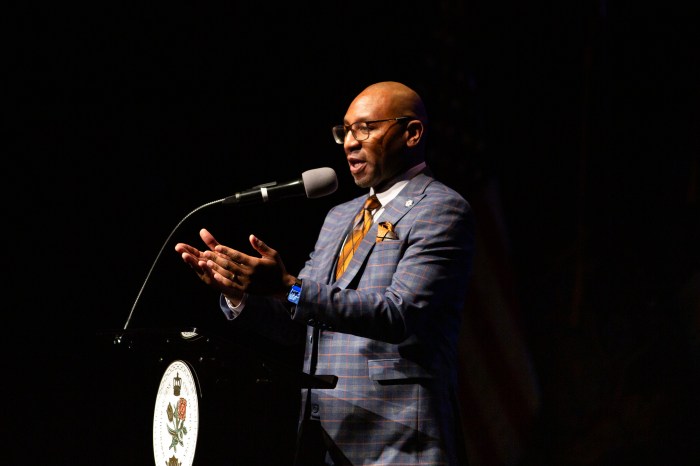When Anthony Weiner and Eliot Spitzer stood in front of the media, admitted their sexual scandals to the public and resigned from office, many believed it was the end of their political careers.
Not only are both men back in politics running for citywide office in New York City, but, according to two recent polls, the Democratic candidates have topped the front-runners in their primary races.
“None of that motivation [to hold political office] goes away because you get caught doing something scandalous,” said Michael Krasner, an associate political science professor at Queens College and co-director of the Taft Institute for Government.
Krasner added that the public tends to be more forgiving of sexual scandals than monetary ones because the former are often viewed as personal matters, compared to the misuse of public money typical of the latter.
But forgiveness may not be the only factor explaining Spitzer and Weiner’s favorable ratings in the polls. Both candidates are benefitting from name recognition, said Krasner.
Yet Spitzer’s high ratings in the polls do not necessarily portend victory on Election Day.
Krasner said Spitzer has made enemies of virtually every interest group in city except for unions. However, many of them have already endorsed Spitzer’s Democratic primary opponent, Manhattan Borough President Scott Stringer.
Such groups are the ones who get out the vote during primary elections, Krasner said.
Though Weiner does not have the same problem as Spitzer, Krasner said the former governor’s political bid could hurt his mayoral chances.
Spitzer “takes the spotlight off of Weiner,” he said. “Spitzer’s entry could hurt Weiner because too many politicians are asking for forgiveness.”
RECOMMENDED STORIES































